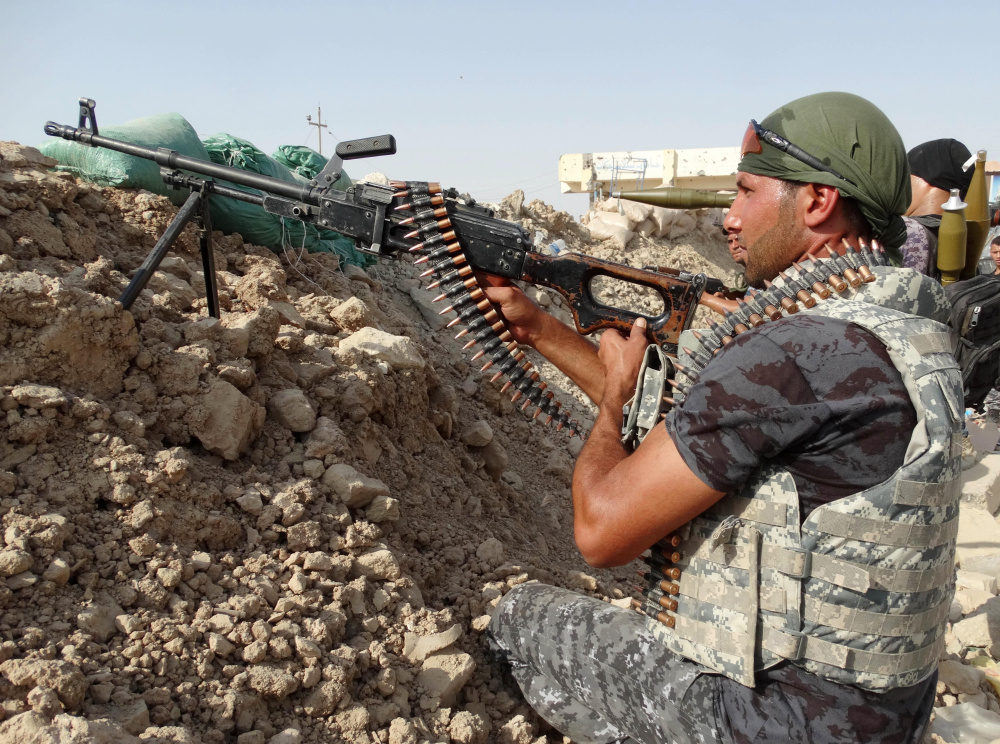WASHINGTON — A summer of stalemate in the effort to reclaim the Iraqi provincial capital of Ramadi, despite U.S.-backed Iraqi troops vastly outnumbering Islamic State fighters, calls into question not only Iraq’s ability to win a test of wills over key territory but also the future direction of Washington’s approach to defeating the extremist group.
The Ramadi standoff, with no immediate prospect of an Iraqi assault on the city, drags on even as the U.S. prepares to makeover its approach to countering IS in Syria and congressional Republicans cite Ramadi as evidence of a failed American strategy. Republican Sen. John McCain of Arizona, a leading critic, says it’s clear the U.S. is not winning, “and if you’re not winning in this kind of warfare, you are losing.”
The Obama administration insists patience will pay off, even in Ramadi, where in May, IS won control against a much larger Iraqi force, shattering claims by U.S. military officials that the group was on the defensive across Iraq.
Afterward, Defense Secretary Ash Carter said the Iraqis “showed no will to fight.”
The loss of Ramadi carried special significance for veterans of the long U.S. war in Iraq. Dozens of U.S. troops were killed there during the counterinsurgency fight to restore Iraqi government control in 2006; hundreds more died in combat across Anbar province, of which Ramadi is the capital.
A Ramadi counteroffensive, announced in July, was supposed to mark a turning point for Iraqi troops, who have proved to be no match for IS. Instead it has sputtered, slowed by sectarian squabbles, debilitating summer heat and the extremists’ use of improvised bombs to create what amounts to a minefield around Ramadi.
Over the past two months, the Iraqi government has added about 3,000 U.S.-trained Iraqi troops to the Ramadi operation, representing one-third of the total, U.S. officials say. U.S. officers in Iraq are working directly with Iraqi commanders to plan and execute the counteroffensive, but the Iraqis appear not to be in a hurry.
Instead of assaulting IS inside Ramadi, the Iraqis have struggled with a weekslong effort to isolate the city by cutting off IS routes for resupply and reinforcement. That has been stymied by disputes between Iraqi federal police and Popular Mobilization Forces, the Iranian-backed Shiite militias considered the most effective fighting force on the ground.
“We acknowledge that the Iraqis have not made any significant forward movement recently,” Col. Patrick Ryder, a spokesman for U.S. Central Command, said Friday.
The slow pace has revealed Ramadi as a microcosm of the obstacles facing both the Iraqis and their U.S. partners, including the competition for power and influence in Shiite-dominated Baghdad, the role of Iranian-backed militias in the fight against IS, and the deep flaws in Iraq’s security forces.
The White House believes a solution to IS cannot be achieved by sending U.S. combat forces back to Iraq. The U.S. argues that the test is whether Iraq’s own forces can be fortified to take back their country. If they cannot, according to Gen. Martin Dempsey, who stepped down this past week as chairman of the Joint Chiefs of Staff, then Washington will need a “Plan B.”
Send questions/comments to the editors.



Success. Please wait for the page to reload. If the page does not reload within 5 seconds, please refresh the page.
Enter your email and password to access comments.
Hi, to comment on stories you must . This profile is in addition to your subscription and website login.
Already have a commenting profile? .
Invalid username/password.
Please check your email to confirm and complete your registration.
Only subscribers are eligible to post comments. Please subscribe or login first for digital access. Here’s why.
Use the form below to reset your password. When you've submitted your account email, we will send an email with a reset code.